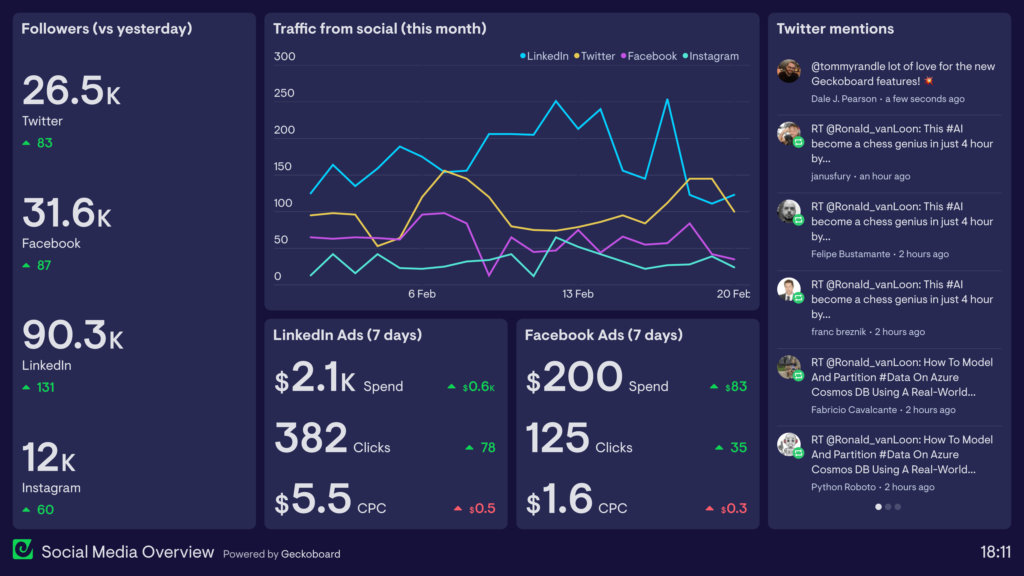Social media can be an immensely effective platform for businesses to connect with their target market and promote products or services, but running a campaign alone won’t show your impact. But how to Effectively Measure the Success of Your Social Media Campaigns without much effort.
Here are a few efficient methods of doing just that:
How to Effectively Measure the Success of Your Social Media Campaigns

1. Establish Clear Goals:
Before embarking on any social media campaign, it’s crucial that your objectives are clear. Are your objectives to increase brand recognition or drive website traffic/lead generation? By setting clear and tangible objectives for yourself, setting precise and measurable goals allows you to more accurately gauge its success.
2. Track Key Metrics:
Once your campaign has gone live, begin tracking metrics that align with its goals and meet them – including engagement rate, reach, click-through rate conversions and ROI. By keeping an eye on these statistics you can determine its efficacy while making data-driven decisions for future endeavors.
Here Are 10 Metrics You Should Measure When Analyzing Social Media Campaigns:
1. Engagement rate
2. Reach
3. Impressions
4. Clicks
5. Shares
6. Likes
7. Comments
8. Retweets
9. Favors
10. Mentions
3. Utilize Analytics Tools:

Social media platforms come equipped with built-in analytics tools that allow you to track and measure the success of your campaigns on various social networks, like Facebook Insights for page likes, post reach and engagement and Instagram Insights for follower demographics and post performance data. Use these tools effectively for greater insights into how well your campaign has performed!
1. Google Analytics: With this tool you can track how many people are coming to your website via social media channels like Twitter and Facebook as well as what they are doing once there.
2. Social Mention: With this tool, it’s possible to track mentions of your brand on various social media platforms and gain insights into how people are discussing you online.
3. Hootsuite Insights: With this tool you’ll gain detailed social media analytics such as an understanding of who are your most engaged followers, top content pieces and much more.
4. Sprout Social: With its comprehensive social media reporting features such as reach, engagement and conversion statistics, Sprout Social is an indispensable asset.
5. Simply Measured: With its in-depth social media analytics capabilities, Simply Measured allows for deeper insight into who are your most engaged followers, the content that garnered the most engagement, etc.
6. Klout: Klout is an effective social media influence measurement tool, helping you assess both your reach and influence online.
7. KISSmetrics: KISSmetrics provides in-depth social media analytics, with features to identify your most engaged followers, most popular posts, and much more.
8. Buffer: Buffer is an outstanding tool that offers comprehensive social media reporting, with detailed insights into your reach.
While most of us take for granted having air, water and electricity as essential necessities of life; other people don’t. So it is only fitting that when it comes to making decisions regarding our daily needs – such as eating and moving around – the use of technology should play an essential part.
4. Utilize UTM Parameters:
UTM parameters are tags added to URLs in campaigns to allow you to track traffic sources more effectively and monitor which social media platforms or specific posts drive most of it towards your website, providing insight that allows you to optimize campaigns more effectively by reallocating resources more strategically.
Here Are Essential UTM Tag Tips to Optimize Social Media Channels Here are Essential tips for using UTMs effectively across Social Networking Platforms
1. Always incorporate UTM parameters on all links that you share on social media platforms, when possible.
2. Ensure the UTM parameters used are up-to-date and accurate, using an easily understandable naming scheme for them and keeping their accuracy current. 3 * Set UTM parameters as parameters when posting social media links that use them
5. Be wary when using UTMs on links you don’t fully understand, until they have been properly tested before publishing them. 6 Always test UTMs before publicising them. 7 Use URL shorteners when publishing UTMs; 8. Keep UTMs brief.
5. Establish Conversion Tracking:
To effectively drive conversions, conversion tracking should be implemented. Social media platforms like Facebook and Google Ads provide conversion tracking tools which allow you to monitor actions taken by users such as purchases or form submissions – thus helping measure how social media campaigns impact business.
Top 10 Ways to Implement Conversion Tracking in Social Media

1. Setup conversion tracking in Google Analytics.
2. Employ UTM codes to monitor traffic from specific social media platforms.
3. Leverage tools like Sprout Social to monitor social media conversions.
4. Integrate Facebook Pixels for tracking conversions generated from Facebook ads.
5. Utilize conversion-tracking software to track conversions on specific social media platforms.
6. Use URL shorteners to track clicks and conversions from social media links.
7. Use Google AdWords to track conversions from Google ads.
8. Use Hootsuite Insights to monitor social media conversions.
9. Make use of tools such as Bitly to track clicks and conversions from social media links.
10. Track clicks and conversions from social media links with Clicky.
6. Track Sentiment and Brand Mentions:
Social media is about more than numbers; it’s also about brand perception. Keep an eye on sentiment analysis and brand mention counts to evaluate your campaigns’ overall effect on their target audiences; increased positive sentiment indicates success for any successful effort that resonates well.
5 Ways to Track Sentiment and Brand Mentions on Social Media
1. Utilize a Listening Tool: Utilizing tools such as Brandwatch or Mention can enable you to monitor all online conversations about your brand or product.
2. Create Google Alerts: Google Alerts is a free service that enables you to monitor online mentions of your brand or products and receive email alerts when someone mentions them online.
3. Search Your Brand’s Social Media: Frequent checks of your brand’s social media accounts is a fantastic way to see what people are discussing online about it in real-time.
4. Check Review Sites: Looking through reviews sites like Yelp or Google can give an understanding of how people perceive your brand or product.
5. Make use of social media analytics: Many social media platforms feature built-in tools that enable you to track brand mentions and sentiment over time on social media platforms like Facebook or Instagram.
7. Regular Analysis and Adjustments:
Social media platforms are constantly shifting and what works today may no longer do so tomorrow. Therefore, regularly analyze and assess your campaign performance for necessary adjustments and experiment with various strategies, content formats, and targeting options to maximize results.
Conclusion:
Evaluating the success of social media campaigns is vital to understanding their effects and making informed decisions for future endeavors. By setting clear goals, tracking key metrics, using analytics tools such as conversion tracking or monitoring sentiment monitoring tools as well as regular analyzing and adjusting, businesses can easily measure social media success while driving tangible busin








